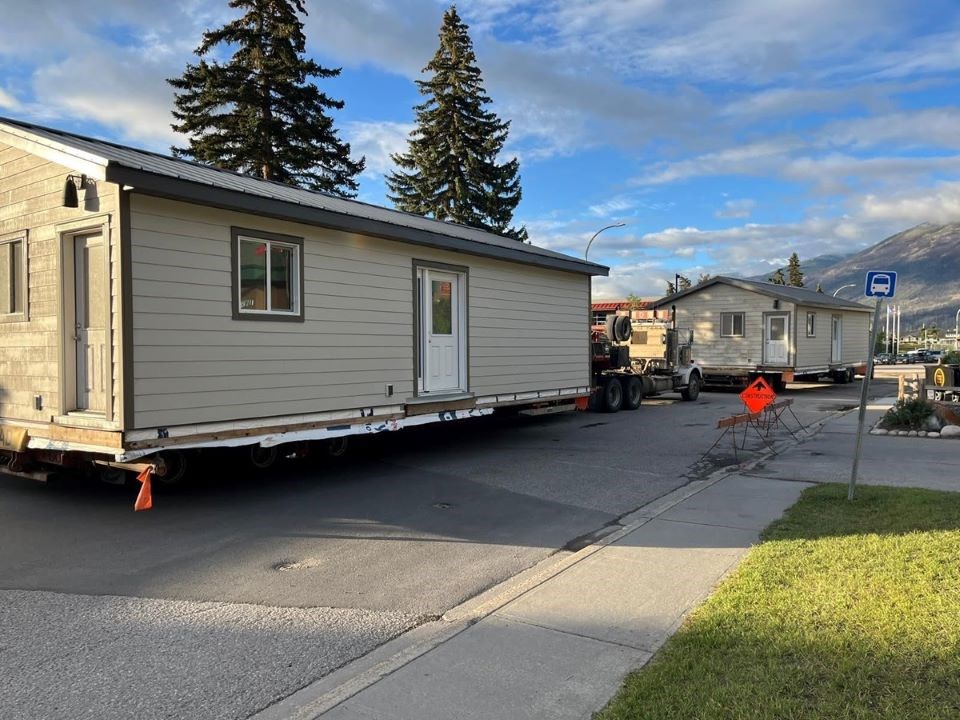JASPER – Residents displaced by the wildfire continue to occupy interim housing with 278 households, or 532 individual residents, having moved in as of Aug. 12.
The Jasper Recovery Coordination Centre (JRCC) provided this report to municipal council on Tuesday (Aug. 19), roughly one year since the JRCC was established by the Municipality of Jasper and Parks Canada to co-ordinate the community’s recovery from the Jasper wildfire.
“Work continues to mobilize additional units of housing,” said Logan Ireland, municipal recovery project manager with the JRCC.
Following the wildfire, Parks Canada provided 4.25 hectares of land in the townsite as well as land at Marmot Meadows for interim housing. The Jasper-Yellowhead Museum and Archives, Trans Mountain and the Jasper United Church have also offered land.
Ireland reported that three units were recently placed in the lot beside the museum, and two more would arrive at Thursday (Aug. 21). A total of eight units will be at the site and the JRCC was targeting occupancy for mid-September.
Six units of housing will be available at Trans Mountain site called Patricia Circle, with a target occupancy date of mid-October.
Site servicing work has begun on both sites. No update was provided on the United Church lands.
A further 22 households, or 36 residents, are in various stages of lease-signing and move-in processes with the Canadian Red Cross, while 115 applicant households have not received offers of housing and 83 more are on a waitlist for options that better suit their needs.
Residents are occupying all 51 long-term campsites at Whistlers Campground and four sites at Sleepy Hollow, and rebuild contractors are occupying 15 sites at Wabasso Campground.
Other highlights
With debris removed from nearly all lots in town, soil sampling is underway to ensure sites are clean and safe for rebuilding.
According to the JRCC, 294 reports have been submitted, and 216 have been confirmed contamination-free. Eleven have been returned for more information, and the remainder are under review or awaiting other certificate of completion requirements.
Since August 2024, 228 development permits have been approved. Development permits issued in July took an average of 27 business days to approve, provided they were complete and conforming. According to the JRCC, this was an improvement from 34 business days in June.
Coun. Kathleen Waxer noted how incomplete or non-conforming applications took 90 business days in July and asked why there was an increase from 70 days in June.
Ireland replied that this spoke to the benefits of submitting permit applications that were already in line with expectations, and leaseholders and builders needed to be prepared.
“I can speculate that Parks Canada is working to support permit turnaround as expediently as they can, and that is reflected in the previous stat, which shows that the turnaround time is decreasing; it’s becoming faster for conforming applications,” he said.
Since August 2024, 83 building permits have been issued, including rebuilds for 24 in-town residential properties, one apartment building, one condo complex, six in-town commercial properties, two outlying hotels and one cabin at Lake Edith.
Ireland clarified that some of the permits were likely for projects unrelated to wildfire recovery, and there may be several permits for one property.
A laydown yard has since been established in the industrial district of town. This area will be used to support the rebuild.




